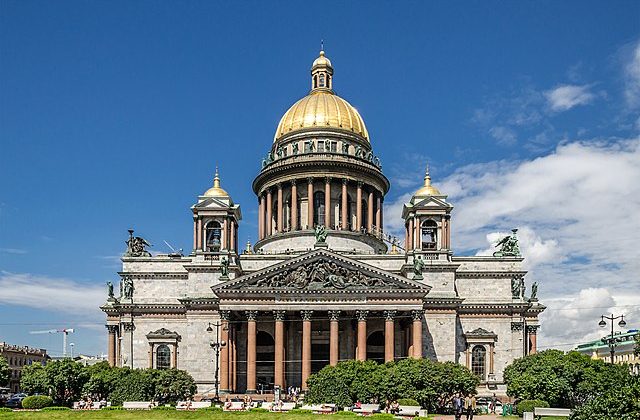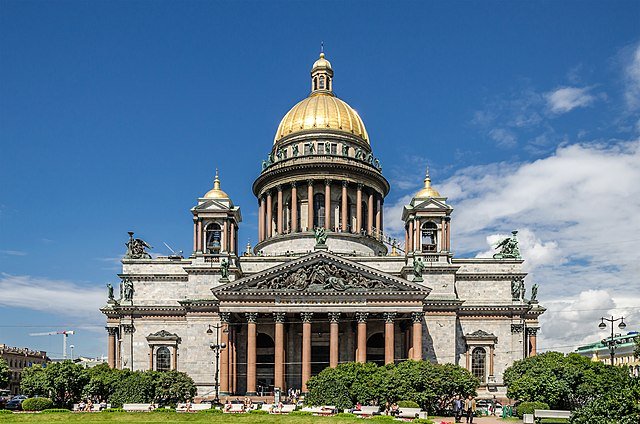

‘Christ is risen!’ – they sing at church.
But I am saddened, my soul is silent.
The world is filled with blood and tears,
And the sound of this hymn before the altar seems an insult.
If He were here among us and could see
The accomplishments of this enlightened world of ours:
Brother pitched against brother,
The dignity of humankind disregarded.
And so, if here, in this glorious church,
‘Christ is risen!’ – if He were to hear it,
With such bitter tears
Would He then weep before the crowd.
The young Russian poet and novelist Dmitry Merezhkovsky wrote this in 1887. Of noble birth, but a definite non-conformist, he would spend the pre-Revolutionary years getting in trouble with the old government, and would have to flee Russia during the Revolution to avoid trouble of a deadlier sort with the new regime.
Merezhkovsky would spend his remaining years in Europe, especially Paris, where he kept cranking out novels, poetry, and literary analyses all wrestling with his love for God and a desire to better understand God’s place in history. He also developed increasingly bizarre theological views over time. In the process, he accumulated a record-setting eight nominations for the Nobel Prize in literature, but alas, no victory.
And yet, much as he loved God, his greatest love of all seems to have been for Russia, with whose many leaders in his lifetime he was so dissatisfied. Eventually, this distorted desire to see his native country restored to greatness would lead him to support the Nazi regime. A thoroughly disillusioned Merezhkovsky died in Nazi-occupied Paris in 1941.
But in 1887, all this turmoil was yet decades ahead, and a mournful Merezhkovsky, eager to see justice restored here on earth, was reflecting on the violence, strife, and suffering that he could see all around. It seemed to the young poet, even Christ would weep at the hypocrisy of Russia of the day, professing His name while injustice reigns.
Merezhkovsky’s cry seems to have resonated with Sergei Rachmaninoff, who set this poem to music in 1906. But as I re-read the original poem just now, I noticed an important detail: Rachmaninoff’s song ends with Christ weeping before the crowds. Merezhkovsky’s original poem did not. The poem’s final lines yearn for peace, and seem as appropriate in 2023 as in 1887:
May there be on earth, brothers,
Neither rulers nor slaves.
May groans and curses grow silent
Along with clang of swords and chains.
And may then, as freedom’s hymn,
Ring out the cry ‘Christ is risen!’–
And all the nations will answer us
‘He is risen indeed.’
(translation mine)